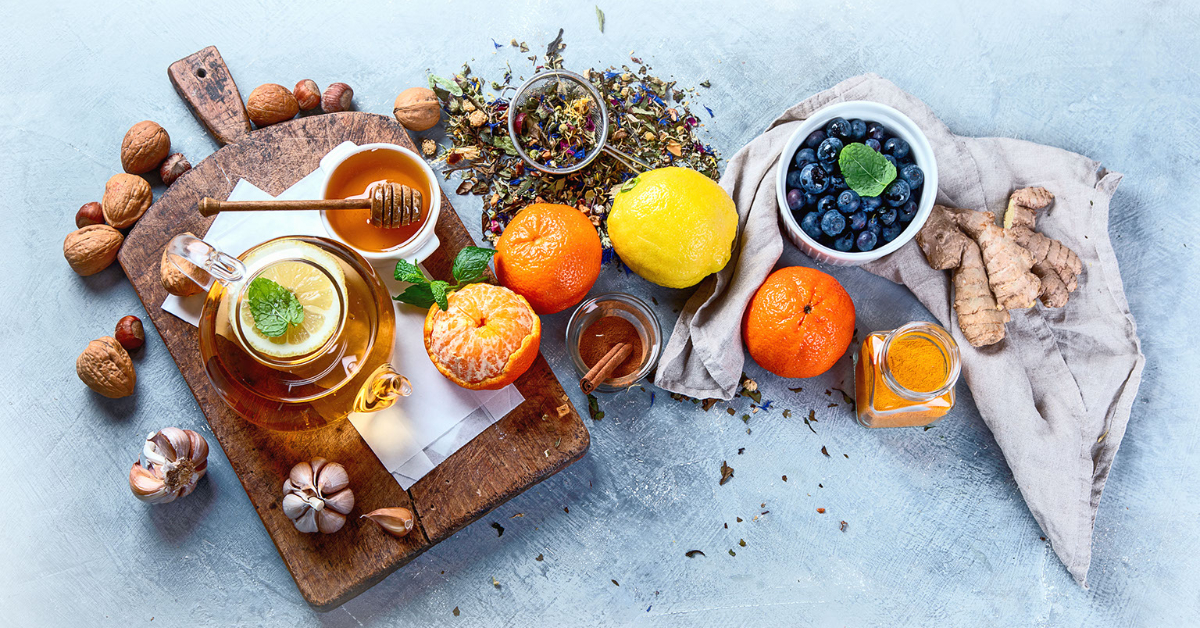In general, it is far better to avoid colds, flu (and now COVID) in the first place. We can do this with flu (and soon) COVID vaccinations, avoiding people who are sick, frequent hand washing, getting plenty of sleep, wearing masks and avoiding touching the eyes or nose. There are many supplements promoted to boost the immune system with the majority of them lacking good strong scientific evidence for efficacy but most are safe for people that want to try them.
Here are some bullet points for the most common natural immune boosters:
- Echinacea: Mixed data regarding prevention and treatment of colds and flu. May modestly reduce cold symptoms and severity duration by a few days. People who are allergic to ragweed should be careful with echinacea because they are closely related.
- Vitamin C: Even though Vitamin C is commonly used to boost the immune system, randomized, controlled clinical trials have not significant efficacy. However, Vitamin C is safe at doses of 1 to 2 grams per day. Doses over 2 grams per day increase the risk of diarrhea and GI upset. Large doses of Vitamin C can also cause kidney stones.
- Elderberry: Elderberry actually has shown to be an immune booster and shorten symptoms associated with cold and flu. It is important to note that the studies using elderberry have used 22 grams per day in 4 divided doses. Be careful if making your own elderberry preparations because elderberry leaves, stems and unripe or uncooked fruit contain a chemical that produces cyanide and can cause nausea, vomiting and diarrhea.
- Honey: 2.5ml to 10ml of money has been shown to be effective in relieving cough. Be careful not to use honey in kids less than 1 year old to avoid the risk of botulism.
- Zinc. Not a great deal of evidence to show that zinc prevents colds and flu and conflicting evidence exists for the treatment of colds and flu. The most commonly studied formulation is zinc lozenges given every 2 hours starting within 24 to 48 hours of symptom onset. Zinc can cause bad taste, dry mouth and nausea. Avoid zinc nasal spray as it can potentially cause permanent loss of smell. Zinc can interact with a number of antibiotics and other drugs so separate zinc dosing by at least two hours from other drugs.
- Ginseng: There is not a lot of data as to whether Ginseng can prevent or shorten the duration or colds or flu. Ginseng also interacts with a lot of medications so this supplement should be used with caution if at all as an immune booster.
- Garlic: Little evidence that garlic can prevent or treat colds and flu. Garlic also interacts with many drugs so use this supplement with caution if at all as an immune booster.
- Combination Products: Ex: Airborne, Emergen-C. Not a lot of evidence to show efficacy but these products are safe and there is no harm in using them if so desired.
These are just a few of the most common immune boosters. There are many more products out there being touted to help with cold, flu and COVID. If you are ever unsure, ask your pharmacist. That’s what they’re there for! Remember the best way to prevent colds, flu and COVID is by avoiding them all together!!


